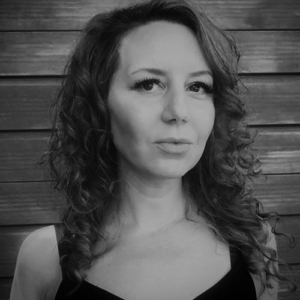
Joel Veenstra is a professional stage manager, production manager, producer, and improviser. He stage manages large scale celebrity galas, including the Legacy Awards, honouring numerous A-list luminaries, and also serves as the University of California’s (UCI) Claire Trevor School of the Arts’ (CTSA) Drama Department’s Associate Chair of Production.
In addition to being an Actors Equity Association Stage Manager, Joel also serves as a Production Manager, Producer, and Improviser. In 2017, Veenstra and Theresa Robbins Dudeck launched the Global Improvisation Initiative (GII) Symposium at UCI in conjunction with Chapman University. He is an interdisciplinary expert in the management of productions, resources, and people, all through a lens of improvisation. Since the start of the pandemic, he has worked and consulted on over 37 remotely-produced live and video produced projects.
I am the faculty mentor for a student organization called Improv Revolution here at UCI, and we produce an annual comedy festival, called the Coup de Comedy Festival, for almost 10 years now. Having my son who was born the same year that that I started teaching here and seeing him at the Coup de Comedy Festival, laughing and participating, enjoying the comedy, was pretty spectacular. I’ve had other opportunities to work with various celebrities like Tom Hanks, Rita Moreno, Laverne Cox, and Keegan Michael Key.
That’s all super fun and super exciting and a joy to work with that calibre of talent, but for me there’s a certain level of intimacy when I see my son laughing at this thing I helped create and appreciating good comedy.
Or when I have a student that excels, that is also more satisfying. I have a student who recently joined the Writers Guild of America, and I helped her develop her first script and stage a reading of it when she was a student at UCI. Another former student who I mentored while at UCI recently was hired as the first Artistic Producer at the Geffen Playhouse in Los Angeles. That’s outstanding. I mean, the way that I can invest in the next generation is even more exciting than the amazing things that I’ve done.
And I’ve done some incredible things; I’m continually in awe of the things that I’ve done, both in terms of volume and the level of collaborators with whom I’ve worked, and yet, you know, it’s infinitely more satisfying when I see younger folks getting passionate about this work, and see my children get excited about this kind of work, and just seeing them being filled with joy at experiencing the Arts.
I think the biggest challenge that I’m still overcoming is that I love what I do and so I want to do it more and I am constantly putting myself out there and taking on more projects. So I am trying to negotiate the number of opportunities I’ve been given, which is awesome and amazing and a huge blessing, but it’s also like I am drinking from a firehose of blessings, and sometimes it feels a little bit like drowning. I’m trying to be more mindful and pace myself, and provide space for both myself and my family.
You really have to face the fact that there’s only so much time in a day.
In a similar vein, with the current racial reckoning that’s happening as well as several of the other major cultural shifts and challenges in the world right now, I want to try to fix all these problems and try to make adjustments to the systems now. And I have to remember that this is a long game and so it can be very disheartening as I’m trying to make spaces more equitable, to make our theatrical processes more holistic, and to bring a focus on wellness to entertainment and theatre spaces. And it can be exhausting.
Our systems have not gotten to this point overnight in terms of all the inequities and all the challenges and all the systems of unhealthy frameworks of thinking about how “the show must go on.” Well, it’s going to take some time and so I have to also think about how do I pace myself in terms of trying to make change, and trying to do so in a way that is also healthy for me, as well as the students, as well as my family. And so it’s similar in some ways as it can be very disheartening at how slow and limited the progress is, and how we only have so much time in a day. And so I have to try to keep my head up in the midst of all that and remember it’s a daily journey moving forward one step at a time.
I think I would tell my younger self, to just keep going. And don’t stress as much about everything. I found myself getting very anxious about the nature of the world and what I was doing and in some ways that served me, and in some ways it didn’t.
So I would try to tell myself to relax and maybe slow it down a little bit because this entire career is a marathon.
Opportunities will come and they will go and they will continue to come, and we don’t need to beat ourselves up over the fact that, you know, we can only do what we can do and we can only do the best we can in the moment. Sometimes you just need to be patient because, you know, things will come.
Things will go and more things will come. It’s the nature of the world and it’s all going to be okay.
Oh my goodness, I am working on so many things. My life right now is a firehose of blessings. We are creating a digital archive for the GII to host the content from the last 3 symposiums. I have researched and co-written an article to be published soon on utilizing improvisation to help healthcare teams to work better together, which is exciting. I am writing the second edition of a book about collaboration in theatre, exploring how we work better together.

I’ve got a host of productions and speaking engagements that are up ahead of me this next year at UCI and beyond. I’m thrilled to continually share my knowledge and share what we’ve learned, especially during the pandemic, in terms of being aware and utilizing technology in some interesting ways to advance the craft and art of both stage management and producing productions. The next major event I am working on is the Del Hughes Awards with the Stage Managers’ Association, which is exciting to honour folks who are outstanding at their craft.
I’m just so thankful for this time. I’m thankful for the world in which we live, where one has resources like TheatreArtLife. When I was growing up, we had so little access to how the world worked in terms of theatre, film, or television. And right now we’re at an amazing time where there’s so many more resources than there ever was in the past, online and available for folks all around the world. All you need is the internet, and suddenly you have infinite opportunities to connect with or learn from people who are like heroes. People who have transformed the world in terms of art forms and practices and processes, are all just at your fingertips, and I think that’s pretty amazing. And so I just want to express my gratitude and I just want to encourage everyone to be aware of how amazing this time is.
Also be generous and kind to yourself and to others, because one of the by-products of having so much is that we get inundated and we get overwhelmed and we get this kind of existential anxiety over like, I’ve got so much opportunity so many options, so many things that I could potentially pursue. And there is this concept of FOMO – the “fear of missing out” – which, if we really look at it, is COMO -the “certainty of missing out” – because you’re definitely going to miss out on something in this life. But I’m trying to encourage folks to be more embracing of a framework of BOMO, which is the “blessing of missing out.” It’s okay to miss out on things.
Every time you miss out on something, you’re actually getting an opportunity to do something that you value more because your priorities are revealed through the choices that you make and the things that you do each day.
So I encourage us to be gracious to one another as we try our best to negotiate this vast world in which we have so much, and we have so much information, and we have so much opportunity. Also, I want to acknowledge that some of us are not in this world where they have a lot going on right because the pandemic has shut down the whole industry as well. I don’t want to minimize that either. However, I would encourage folks to considers what isn’t wrong in their lives right now and look for the good and community. During this pandemic there’s been an explosion of like-minded people getting online and connecting with each other and networking.
There’s always a blessing, if you look forward there’s always something good, even in the bad, and, and we need to support each other through the bad and have each other’s back. I’ve been very blessed right now and I’m happy to share my blessings with other people to support them in any way that I can. We are in this world together and we have to collaborate to continue forward as a species.
Links:

Accessibility At The Smith Center Series: Part One
James “Fitz” FitzSimmons Interview: The Boys In The Band On Netflix


Michelle is a musician and composer from the UK. She has performed across the UK and Europe and is passionate about arts education and opportunities for women and girls.
Read Full Profile© 2021 TheatreArtLife. All rights reserved.

Thank you so much for reading, but you have now reached your free article limit for this month.
Our contributors are currently writing more articles for you to enjoy.
To keep reading, all you have to do is become a subscriber and then you can read unlimited articles anytime.
Your investment will help us continue to ignite connections across the globe in live entertainment and build this community for industry professionals.